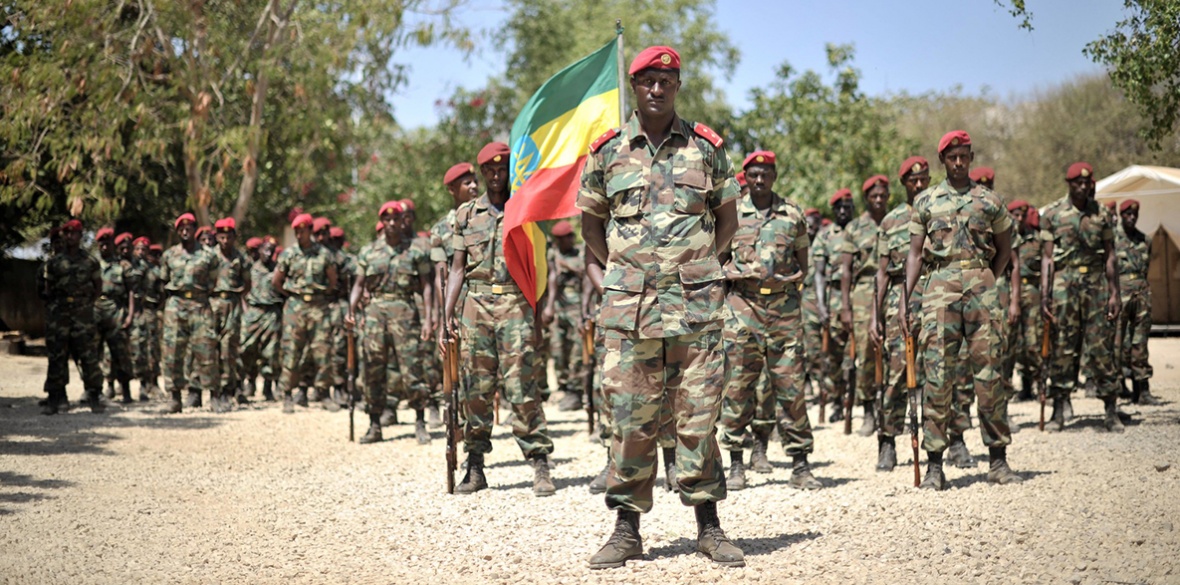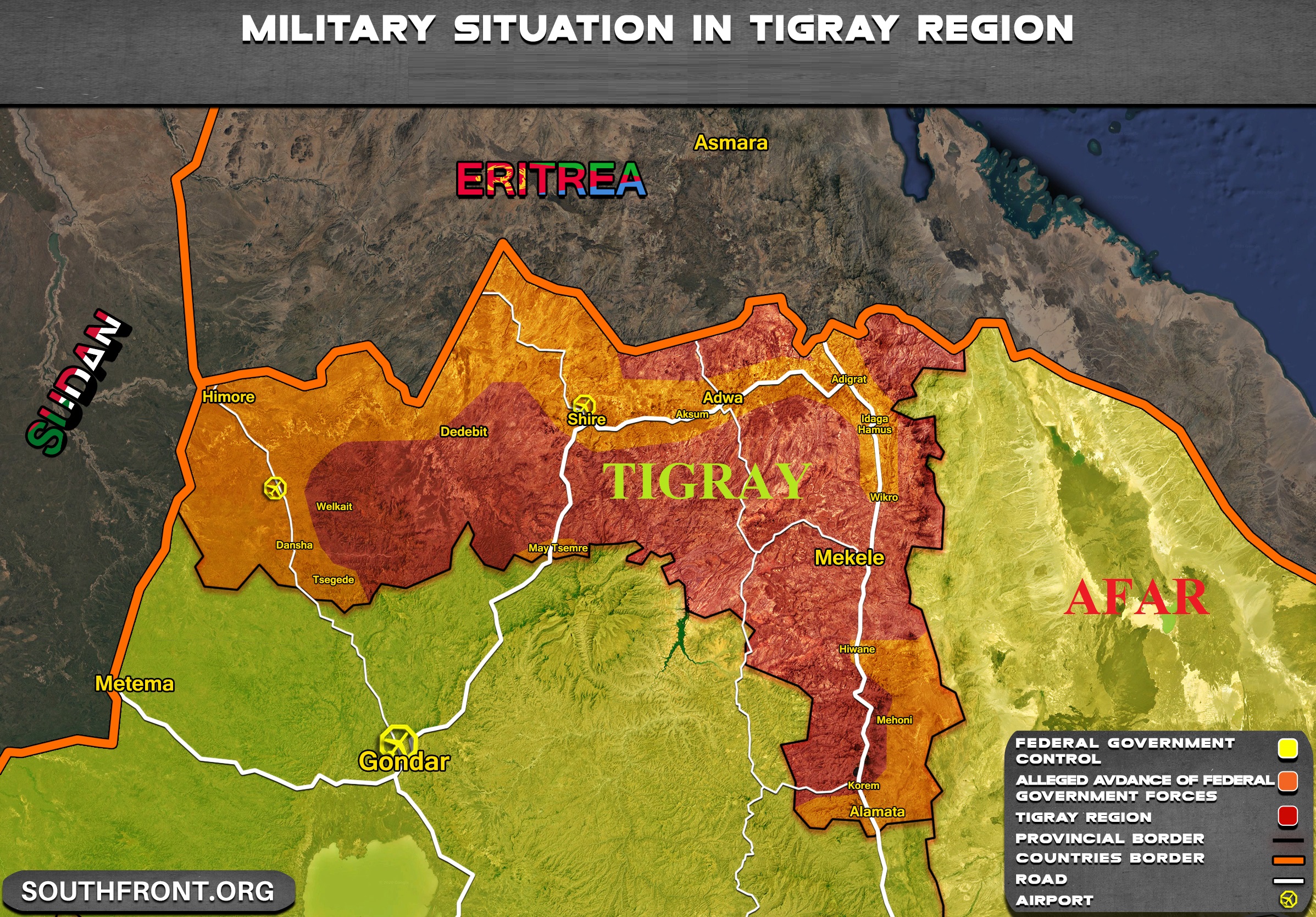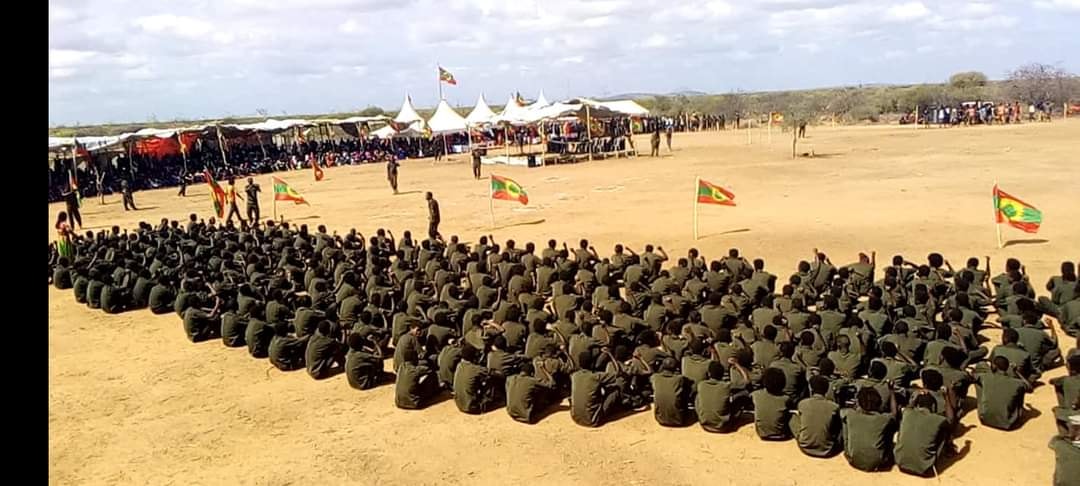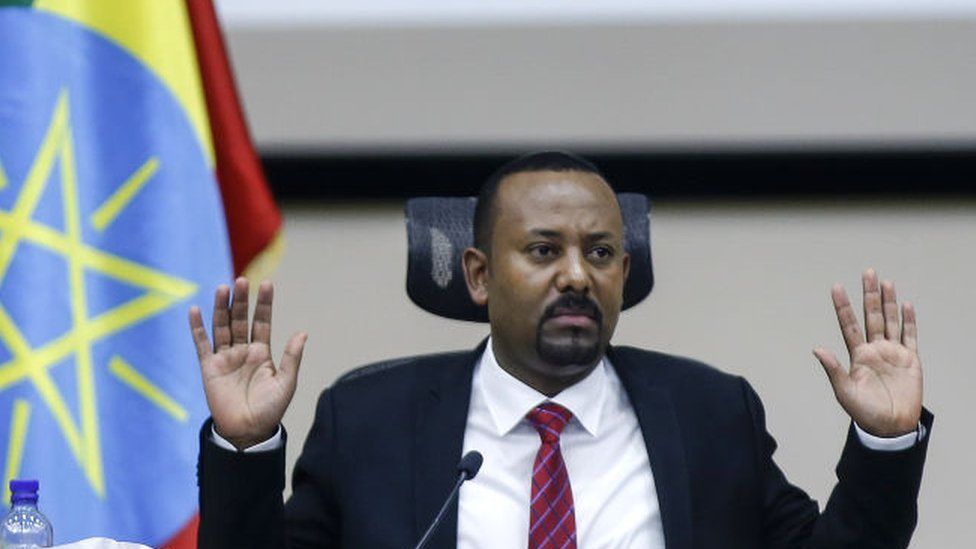Written by Daniel Edgar exclusively for SouthFront.
It appears that the Tigray Defence Forces (TDF) may have adopted a new strategy, seeking to impose a reciprocal blockade on the Federal government by cutting off the crucial Djibouti – Addis Ababa transport corridor. Meanwhile, in what appears to be a desperate gambit, Ethiopian Prime Minister Abiy Ahmed has urgently called upon recruits from the security forces of more Regional States to reinforce the severely degraded and demoralized Federal military forces.
With respect to the latest TDF offensive into the Afar region, which also lies in the general direction of the Djibouti – Addis Ababa transport corridor, several TDF sources and spokesmen have affirmed that the intention is to impose a reciprocal blockade on the Federal government, suggesting that the recent incursion into neighbouring Afar Regional State (which had participated in the conflict previously, its political leaders making a small contribution from the province’s armed security forces to the Federal government) is not just to neutralize the Federal government’s military forces deployed there, but also has the ambitious and risky objective of cutting off the country’s main trade route.
Earlier this week a spokesman for the Tigrayan forces, Getachew Reda, confirmed that the fighting had already been ongoing in the Afar region for several days (since around the 17th of July), claiming that the objective of opening the new front in the conflict was not to occupy and take permanent control over the territory of the neighbouring region, stating:
“We are not interested in any territorial gains in Afar, we are more interested in degrading enemy fighting capabilities.”
According to another report, one operation “targeted special forces and militia fighters from the Oromia region, Ethiopia’s largest, who were massing along the Tigray-Afar border,” the rebel spokesman, Getachew Reda, told AFP.
‘We took those actions to ensure those forces are sent back to Oromia, and we have managed to do that’, Getachew said, adding that there were some casualties but he could not provide figures…
Some reports also indicate TDF intercepted a convoy full of militias from Oromia in Afar. There was barely a fight. Hundreds of Oromo combatants simply surrendered.
“Ethnic militias are not fools. They have no interest in waging war on Tigray. It is not their fight,’ adds Rashid Abdi.”
In terms of the possible attempt to cut the Djibouti-Addis Ababa transport corridor, regional media outlet Garowe Online further reports that:
“In the new strategy, multiple sources confirmed, TDF will now take control of the road and a railway link to Djibouti, thus cutting supplies of goods to Addis Ababa. Ethiopia, being landlocked, entirely depends on the Port of Djibouti for imports and exports.
TDF insists ‘If Ethiopia wants to choke us, we choke Ethiopia’. The Tigray fighters who accuse Abiy Ahmed of seclusion, are also determined to bring Afar region’s rebels on board to strengthen its force which is now regarded as ‘strong and dangerous’.
Should the plan of TDF succeed, Ethiopia might now run short of fuel…” (LINK)
Such a move would also greatly hinder the Federal government’s desperate efforts to import large quantities of other supplies of war materials to replace the materials that have been captured or destroyed by the TDF and replenish what remains of the country’s shattered armed forces. Yesterday, the same media outlet reported that additional information it has received suggests a contingent of Djiboutian troops supported by a company of armoured vehicles has been despatched to the border with Ethiopia with the objective of “thwarting a possible threat” by Tigray Defence Forces to cut off the transport corridor to the Ethiopian capital by boosting “the defence of key road and rail links with Ethiopia”. Around 95% of Ethiopia’s cargo transits through the corridor between Addis Ababa and the Port of Djibouti. (LINK )
While it is doubtful that the TDF could strike across hundreds of kilometres of enemy territory en masse to take over the transport corridor, it is quite feasible that detachments of small units could very effectively disrupt cargo shipments, by destroying or damaging key infrastructure along the corridor and ambushing convoys.
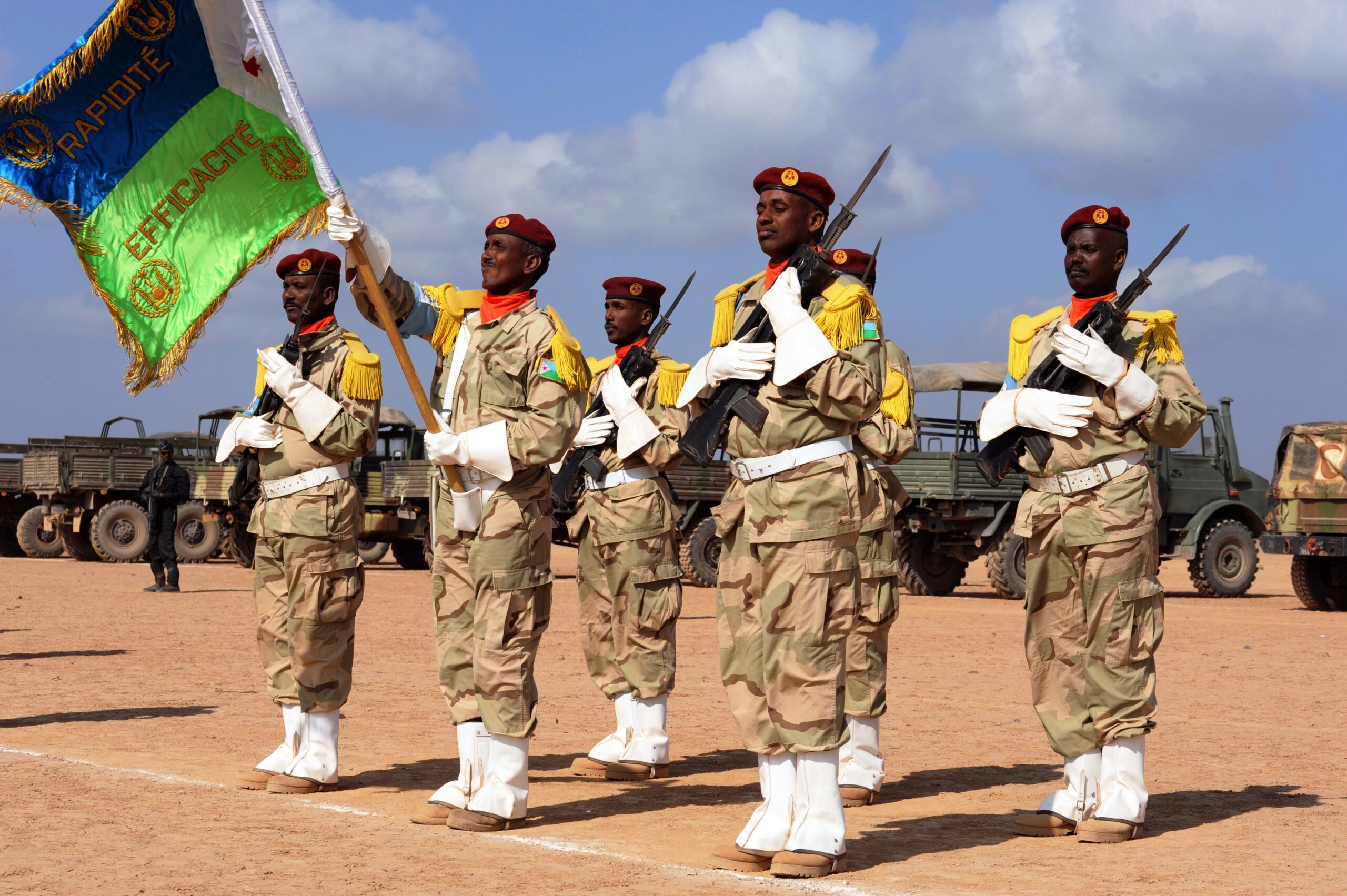
GRAND BARA, Djibouti (Dec. 4, 2009) – The Djibouti national army (U.S. Air Force photo by Master Sgt. Carlotta Holley/released)
The Federal government’s recruitment drive
In terms of the Federal government’s hasty recruitment drive, following last week’s announcement by Federal government officials and State media that Oromia, Sidama and the Southern Nationalities and Peoples’ Region (SNNP) had sent contingents from their regional security forces to fight alongside the Federal armed forces, the political leadership of most of Ethiopia’s other Regional States have also sent units of their security forces north to take part in the conflict.
According to official sources and preliminary reports from the front lines, officials of the Dire Dawa region have sent a contingent from its police force, there is also a contingent from the Special Forces of Gambela region, of police and Special Forces from the Harari region, of Special Forces from the Somali region, and of Special Forces from the troubled Benishangul-Gumuz region. (LINK)
Thread of the TDF capturing ENDF+OSF equipment, vehicles and POWs in Afar Region pic.twitter.com/CJsKLc5B8Z
— Ethiopia Map (@MapEthiopia) July 20, 2021
As noted above, a significant number of Oromia security forces personnel have already been killed or captured by the TDF, apparently offering little resistance. According to the latest media reports, the TDF has already achieved several other victories in the fighting along the new front, including according to at least one source capturing Colonel Awol Yasin, head of the ENDF’s Eastern Command, along with a substantial number of ENDF and OSF (Oromia Security Forces) soldiers.
It is likely that many of the new recruits from the security forces of the other Regional States will not fare much better than those of the OSF in terms of confronting the now well armed and highly motivated and battle-hardened forces of the TDF. Only time will tell the extent to which the newly conscripted combatants share their political leaders’ willingness to participate in the Federal government’s disastrous military campaign.
The conscription of the regional forces into the Federal government’s campaign against Tigray is a huge gamble, as many of them are leaving their home provinces largely undefended at a time of increasing conflict and violence. Of all Ethiopia’s Regional States, Oromia is one of those that can least afford to deplete its already severely over-extended regional security forces. There has been widespread violence and conflict in Oromia Regional State over the last few years, and the violence has intensified even more this year.
It appears that the Oromo Liberation Army has strengthened its operational capabilities considerably during this period, though its spokesmen have repeatedly denied responsibility for the many attacks and massacres that have taken place against civilians and in some instances entire communities. It is unclear the extent to which other armed groups may be active in the region, or whether other actors may be covertly instigating at least some of the attacks in order to fan the bloodshed.
The move to conscript contingents from the regional security forces also confirms the TDF’s claims that a large part of the Federal armed forces have been routed and their fighting capabilities are greatly reduced. This was the logical implication of PM Abiy’s affirmation before the Federral parliament earlier this month that the Federal government could recruit a million more youths if necessary to re-activate the military campaign against Tigray later this year.
Could a ‘Palace coup’ save the country from ruin?
Given the intransigence of the prime minister, who continues to use the most inflammatory rhetoric against his enemies (on 18 July his office issued a statement referring to Tigrayans as ‘the cancer of Ethiopia’ and called on all Ethiopians to ‘collaborate to remove the invasive weed’) and refuses to even consider seeking a path towards a negotiated settlement to begin to address Ethiopia’s multiple political, economic and security crises, it appears possible that a ‘palace coup’ may be the only thing that could save Ethiopia from the looming catastrophe.
As one analyst has commented:
“There was a moment when Abiy was seen indispensable to solving Ethiopia’s problems. Today he is the problem…
Abiy Ahmed became prime minister in April 2018 at a time of crisis in Ethiopia. ‘Crisis’ is a relative term. The economy was growing fast, the country had functioning state institutions envied by its neighbors, the ruling party was finally moving towards being an arena for genuine political debate, and the country was at peace with all its neighbors save one—and was well positioned to impose peace terms that would compel Eritrea to demilitarize and democratize. The government faced no military threats at home or abroad; it was Africa’s largest contributor to United Nations and African Union peacekeeping operations; Ethiopia enjoyed strong relations with the U.S., Europe, and China. Middle Eastern that countries it had long regarded as strategic challengers—Egypt and the Gulf States—were at bay.
Abiy came to power because a largely non-violent democratic protest movement caused the head of government to step down and the core element in the ruling party and security sector—the Tigrayan People’s Liberation Front (TPLF)—to step aside.
After 27 years in power, the Ethiopian People’s Revolutionary Democratic Front (EPRDF) had dismally failed on democracy and human rights, but had won Ethiopia an enviable reputation for stability and growth. Ethiopia’s state capacity was not an automatic inheritance of its long history as an independent polity. Ethiopia’s state had been built by decades of statesmanship at the top, investment in institutions, and lifelong dedication by civil servants…”
In this context, with one disaster after another, and everyone involved trying to shift responsibility for what has happened to someone else, Abiy’s term as prime minister may be in its final stages (LINK):
“The Tigray Defence Force’s recapture of the Tigray provincial capital Mekelle after Abiy claimed victory is an embarrassment Abiy cannot hide. Nor, even with the tight control Abiy’s regime holds over the media, can he hide the images of thousands of Ethiopian troops paraded through the capital as prisoners.
This creates a perfect storm for Abiy. The government wants a scapegoat for their failure, and top generals could target Abiy if only to preempt the prime minister targeting them. Nor is Tigray the only insurgency Ethiopia now faces. At the same time, the implosion of Ethiopia’s economy means that Abiy is haemorrhaging the support of ordinary Ethiopians in the capital and across the country….
Abiy’s arrogance toward fellow African leaders and the African Union means that, while none care for the precedent of a violent overthrow, neither would any intercede if members of Abiy’s own entourage pushed Abiy aside. Regime change in Ethiopia will be internal and may likely come in a matter of weeks rather than years…”
This raises a host of questions, among them who would take over the unenviable task of leading a transitional government, and what would their objectives be: to continue the disastrous military campaign against Tigray, or to seek an immediate cessation of hostilities and initiation of comprehensive negotiations to try to prevent a violent and destructive break-up of the country?
Well before the TDF proclaimed its conditions for negotiations to occur several weeks ago, the political opposition groups in Tigray had proclaimed a list of conditions – very similar to those ultimately proclaimed by the TDF – that could provide the basis for negotiations to occur. A Joint Press Release by Salsay Weyane Tigray (SAWET), National Congress of Great Tigray (the Congress) and Tigray Independence Party (TIP) on the situation in Tigray, appealed to the international community to use all of its persuasive forces to pressure the Federal government to take several steps.

Members of Amhara region militias ride on their truck as they head to face the Tigray People’s Liberation Front (TPLF), in Sanja, Amhara region near a border with Tigray, Ethiopia November 9, 2020. REUTERS/Tiksa Negeri
The international community should act swiftly,
- to ensure an immediate withdrawal of the invading Eritrean army
- to ensure an immediate withdrawal of the aggressor Amhara militia and Ethiopian army
- to ensure a secure access and direct humanitarian assistance in Tigray
- to ensure an unrestricted access to the international media to get to Tigray and cover what is happening.
- to ensure a deep, independent and international investigation of the egregious war crimes and crimes against humanity that are committed by all forces that wreaked havoc in Tigray and make the perpetrators accountable.
- to press the Ethiopian government to stop the ongoing war in Tigray and start a dialogue process aiming at resolving the political problems in Tigray and the country.
Battlefield developments may yet oblige the Federal government to seek negotiations based on broadly similar terms, with the prime minister or without him.
MORE ON THE TOPIC:
- Ethiopia Tigray militants attacked neighboring Afar region
- Ethiopia Preliminary analysis of the implications of the stunning battlefield reversals in Tigray
- Ethiopia international pressure builds demanding Eritrean troops withdraw from Tigray region
- Civil war in Ethiopia conflict developments and background



